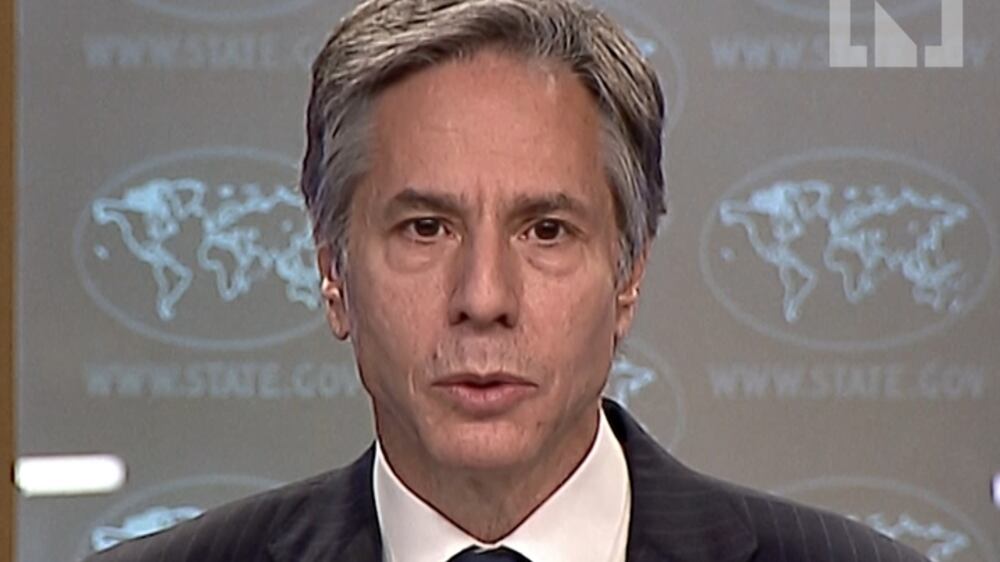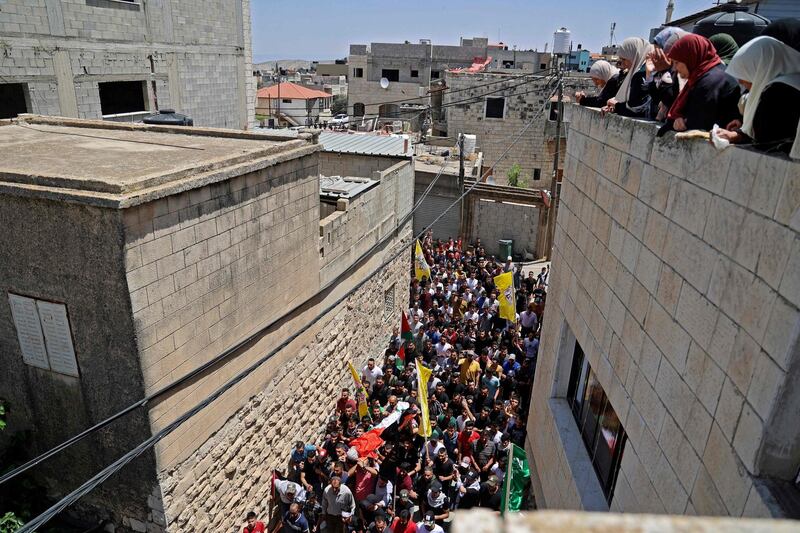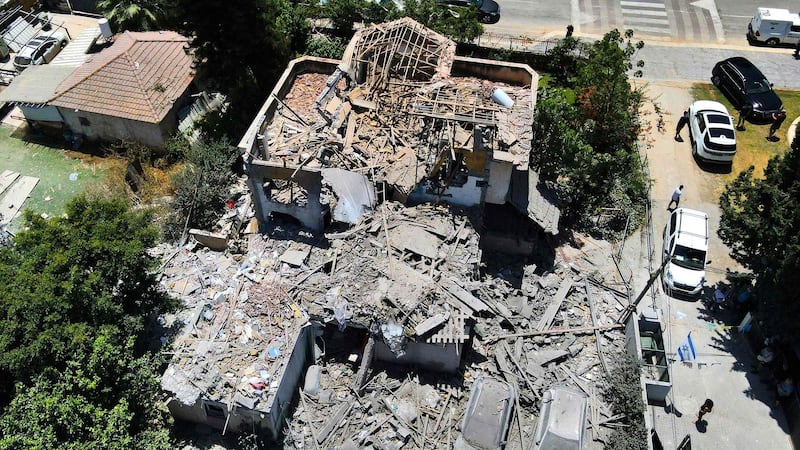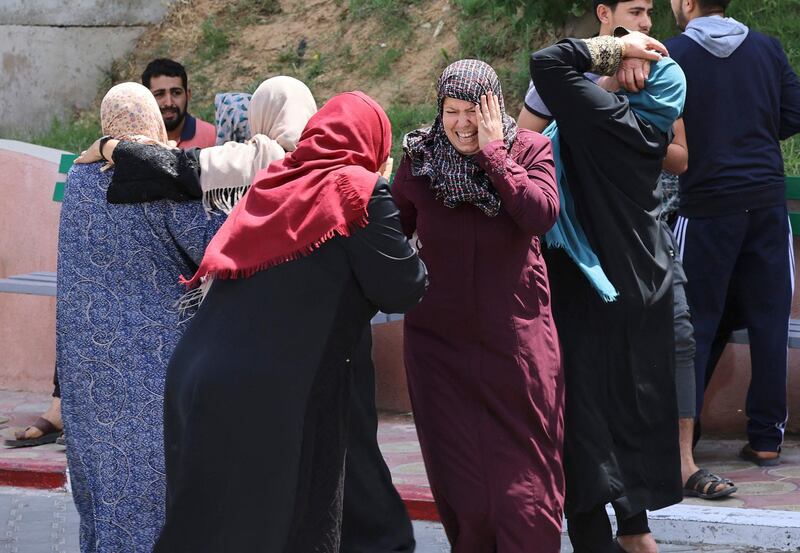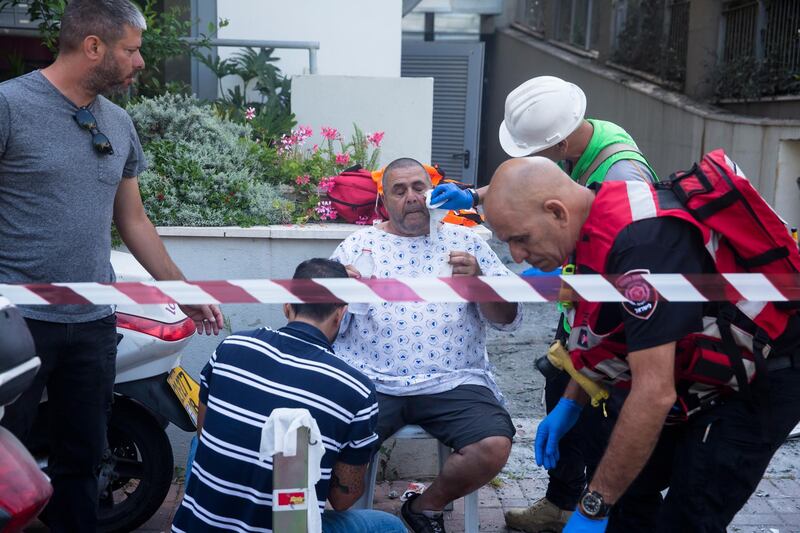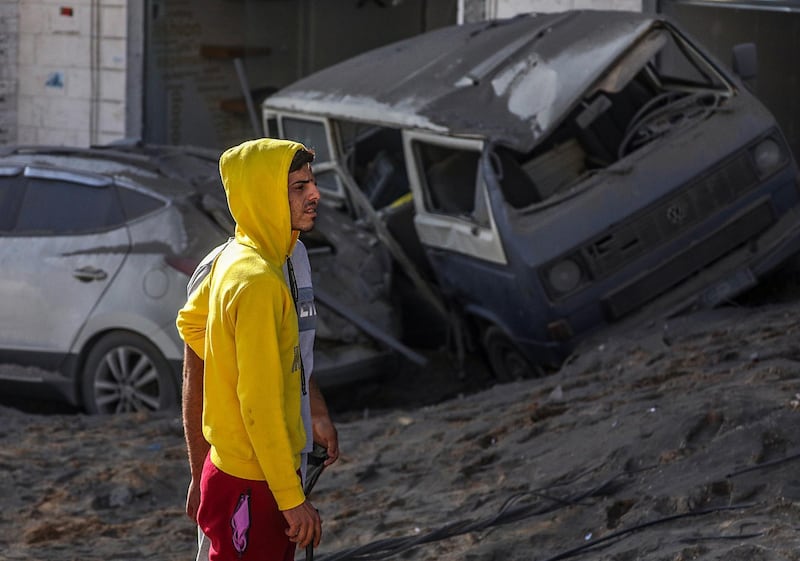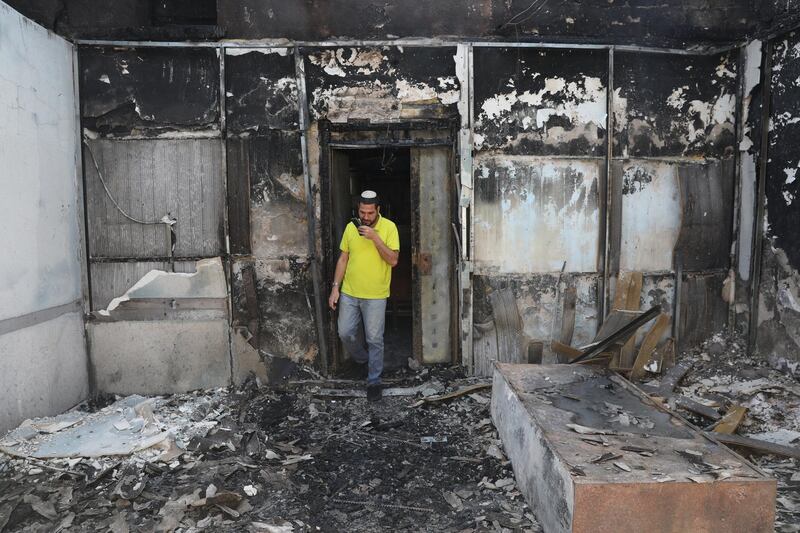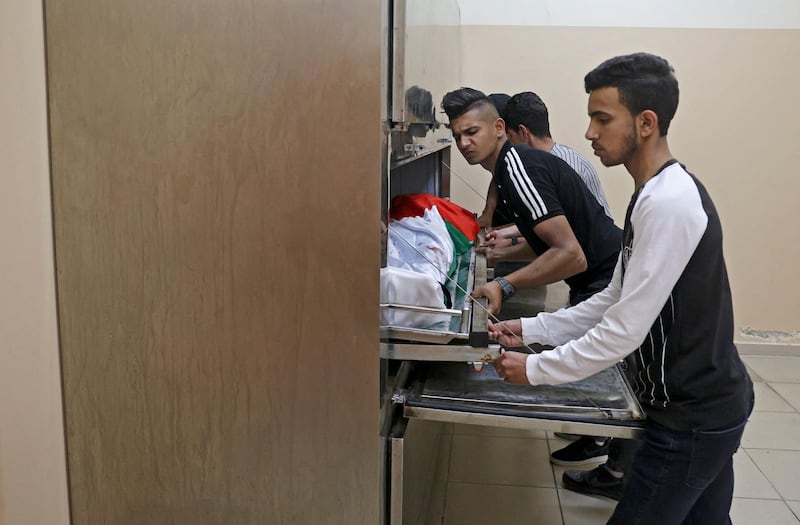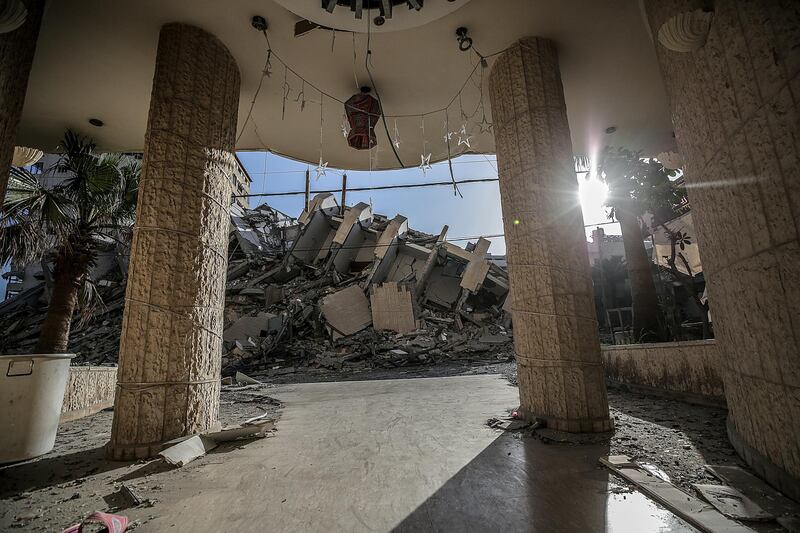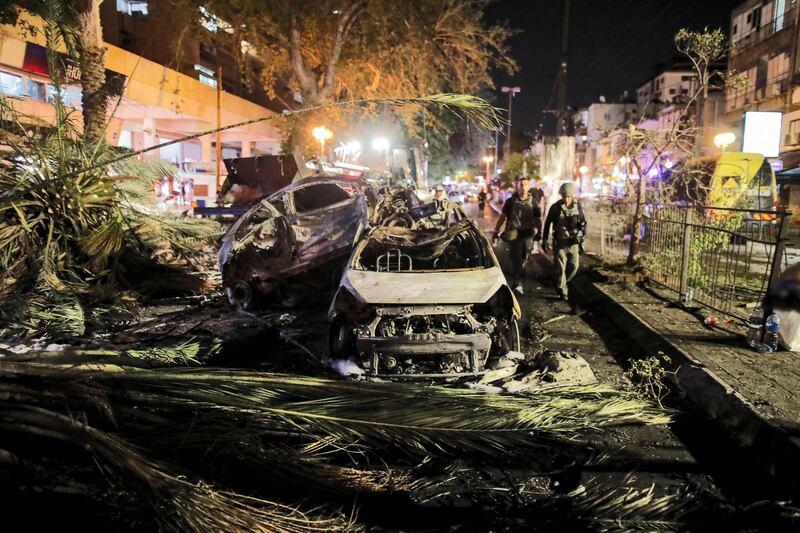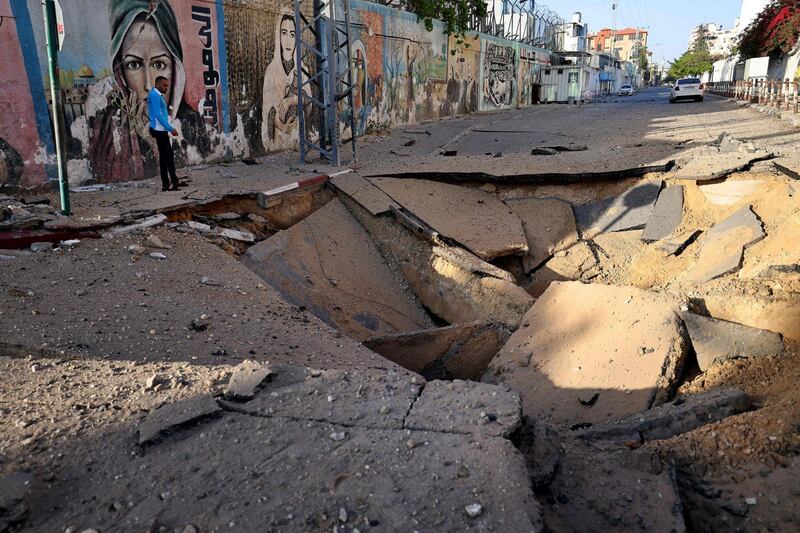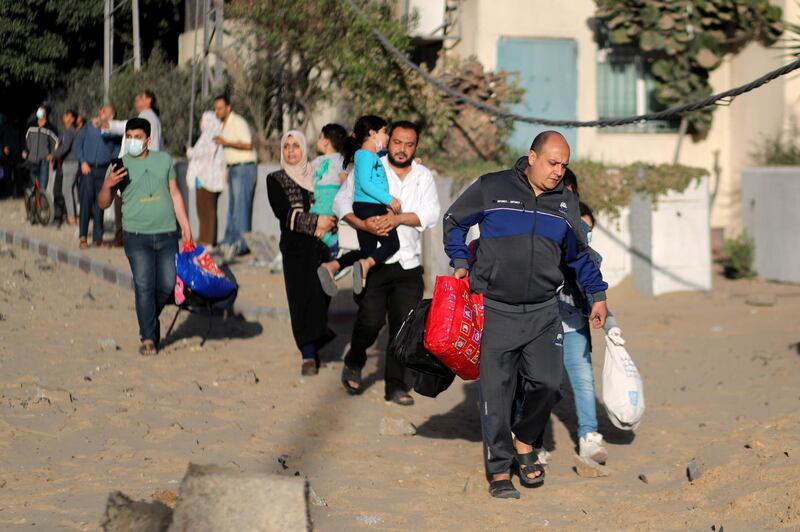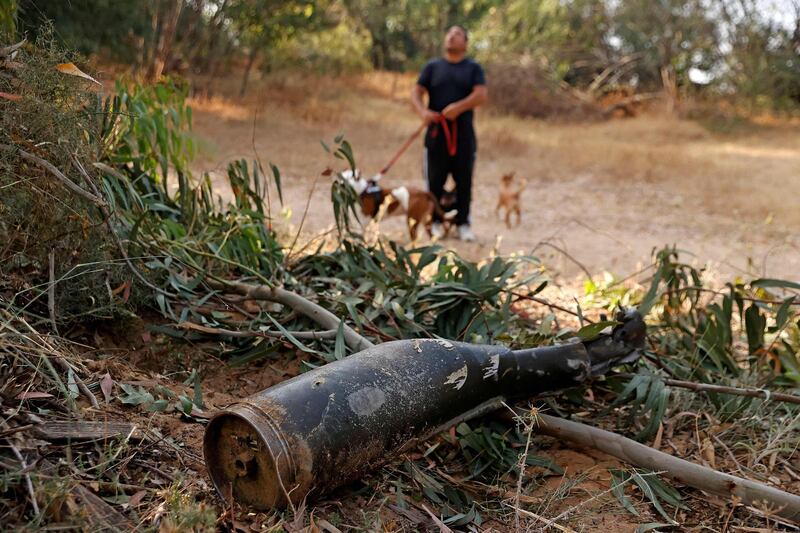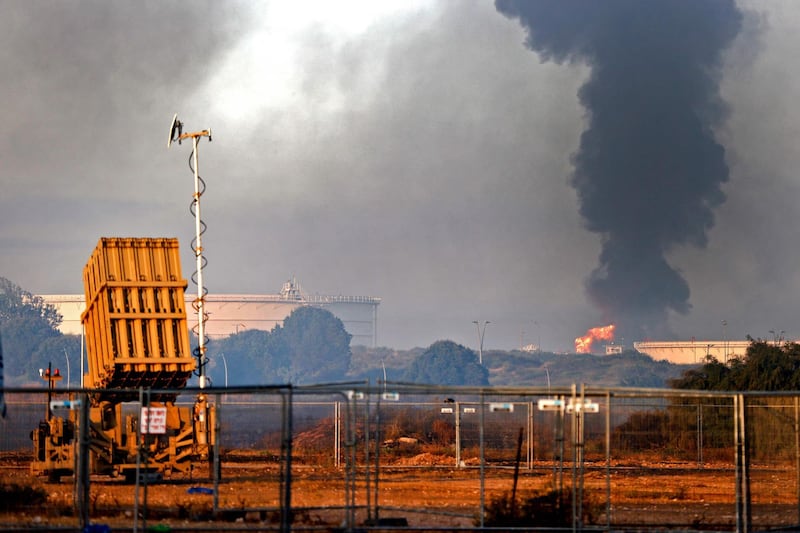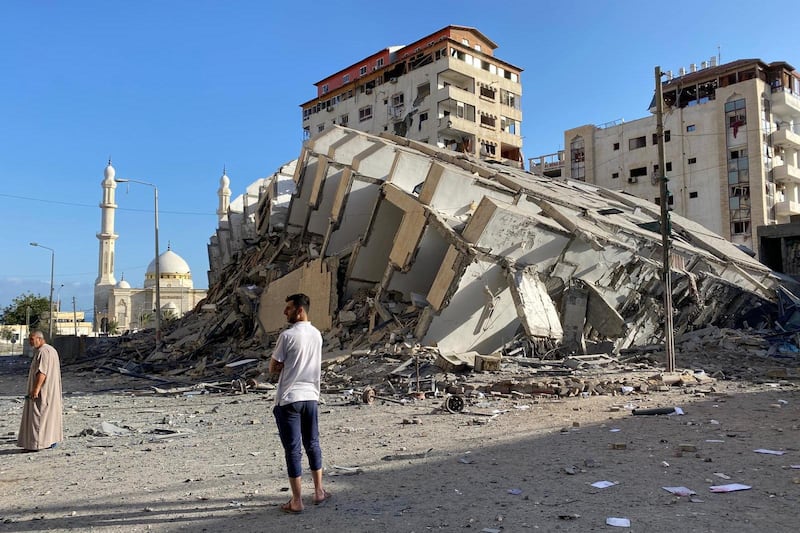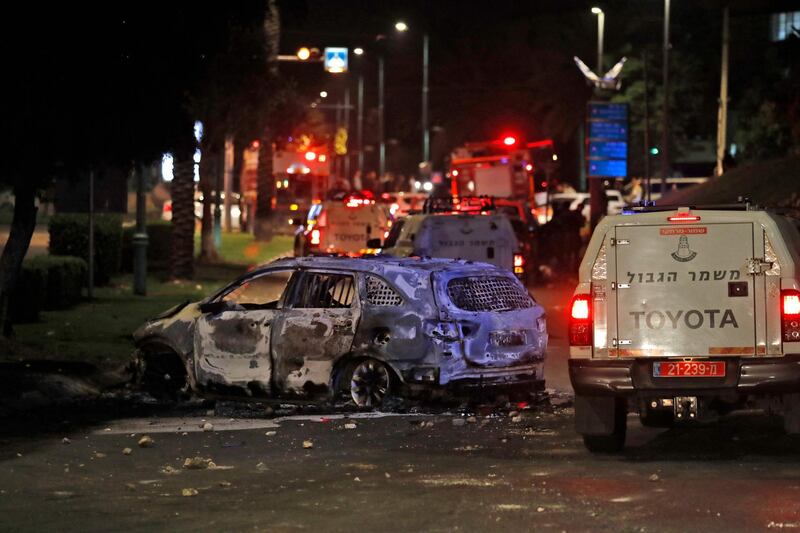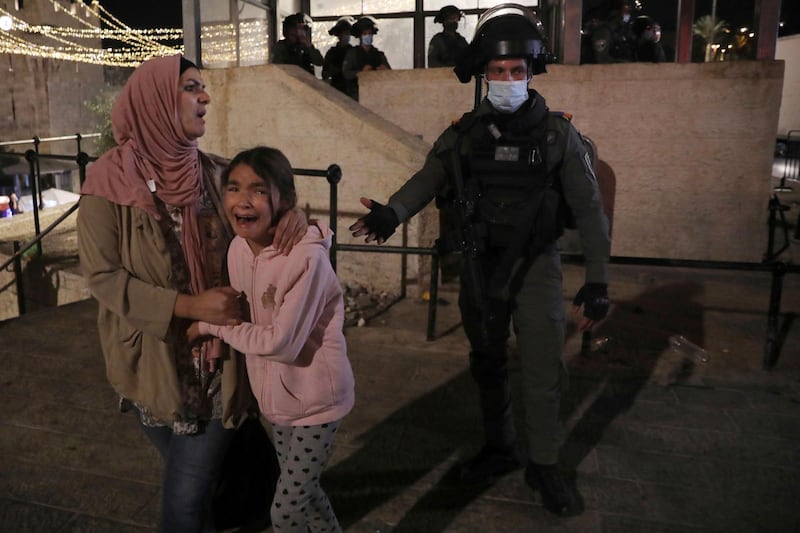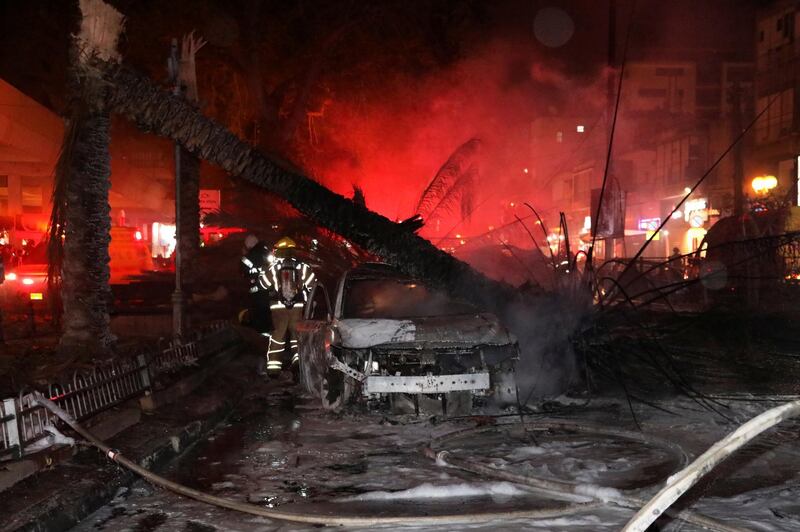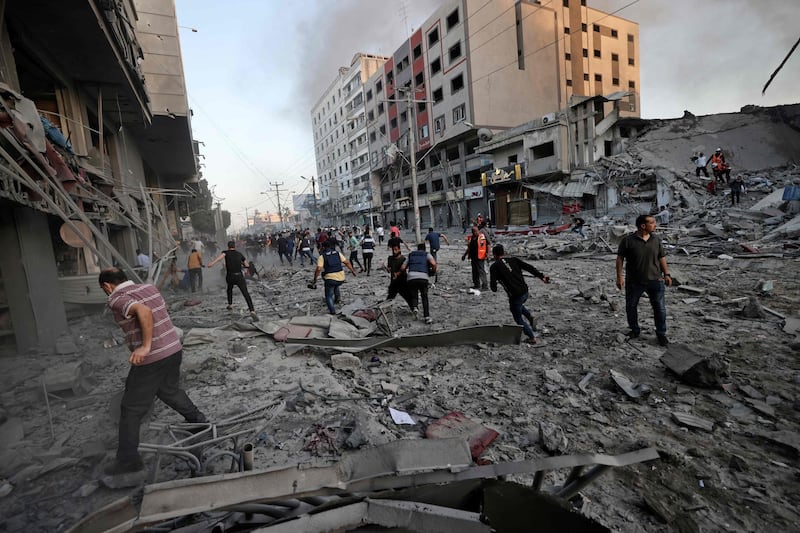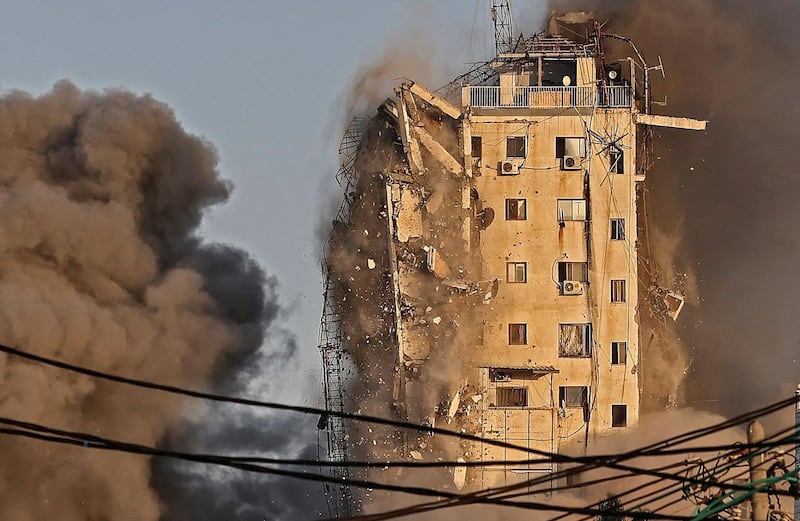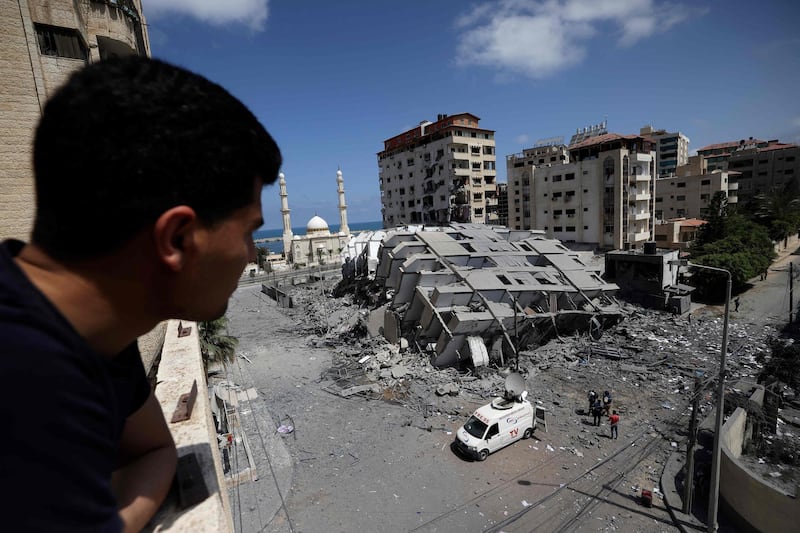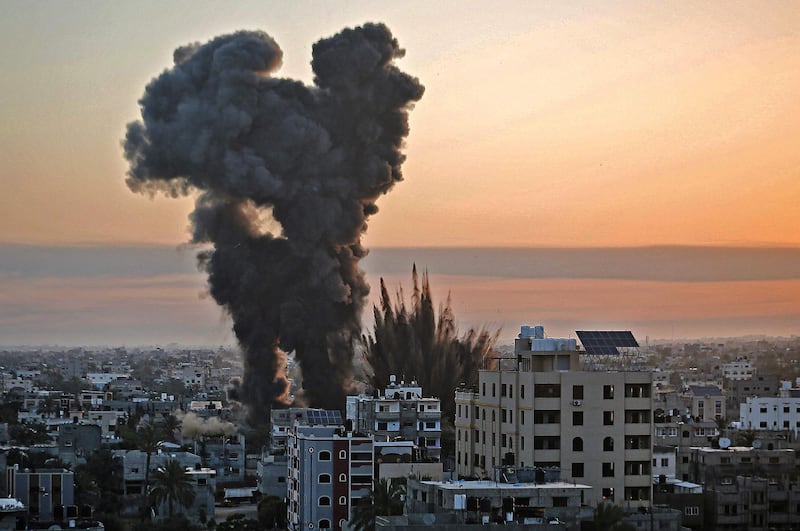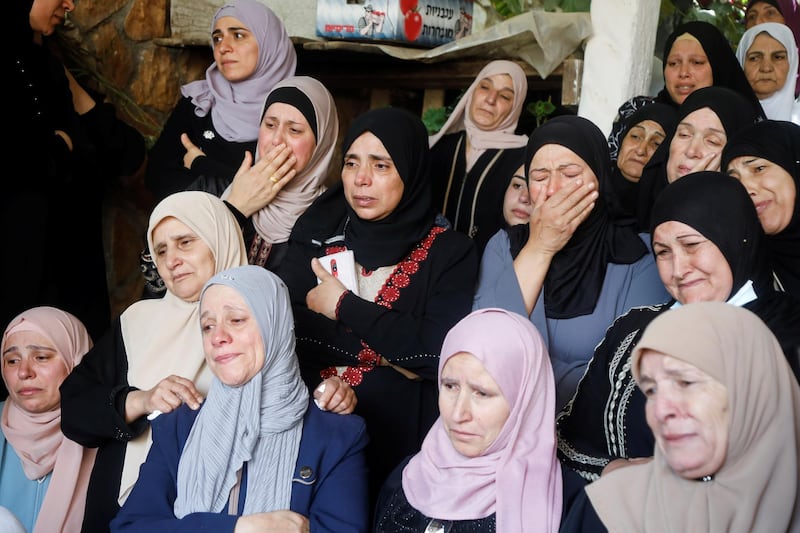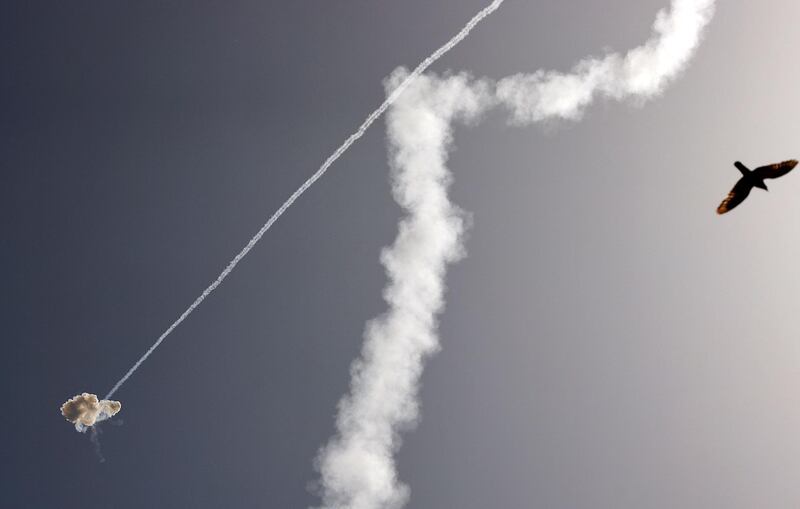Washington will send senior diplomat Hady Amr to Israel to help de-escalate the fighting with Palestinian militant group Hamas.
"I've asked Deputy Assistant Secretary of State Hady Amr to go to the region immediately to meet with Israeli and Palestinian leaders," US Secretary of State Antony Blinken said.
Calling on Israelis, Palestinians and regional partners to push for de-escalation, he said: "We are deeply engaged across the board.
“Israel has the right to defend itself and Palestinians have a right to live in safety and security … [the] most important thing is for all sides to cease the violence,” he said.
"Israel has an extra burden in trying to do everything it possibly can to avoid civilian casualties even as it is rightfully responding in defence of its people."
US sources told The National Mr Amr's trip had initially been planned for next week but was moved to Wednesday due to the fighting.
Mr Blinken also spoke with Israeli Prime Minister Benjamin Netanyahu on Wednesday.
In a statement, the US State Department said the two "discussed the ongoing violence in Jerusalem, and the Secretary reiterated his call on all parties to deescalate tensions and bring a halt to the violence."
I spoke with @IsraeliPM today about the ongoing situation in Israel including rocket fire emanating from the Gaza Strip targeting Israeli civilians. Israel has the right to defend itself. Palestinians need to be able to live in safety and security. It’s vital now to deescalate.
— Secretary Antony Blinken (@SecBlinken) May 12, 2021
President Joe Biden's administration is leaning on Egypt and Jordan to help broker a truce before Eid on Thursday, sources said.
But those hopes have dimmed amid an intense exchange of air strikes and rocket attacks between Israel and Hamas. At least 56 Palestinians and six Israelis have been killed.
Separately, US Defence Secretary Lloyd Austin spoke with his Israeli counterpart Benny Gantz on Wednesday and conveyed Washington’s "ironclad support for Israel's legitimate right to defend itself.”
He “strongly condemned the launching of rockets by Hamas and other terrorists groups that targeted Israeli civilians” and “reiterated the importance of all involved parties to take steps to restore calm,” a statement by the Pentagon read.
I spoke to MoD @gantzbe today about Hamas’ attacks targeting Israeli civilians. We remain committed to Israel’s legitimate right to self-defense & call on all parties to reduce levels of violence and threats to civilians, especially ahead of the upcoming Jewish & Muslim holidays. pic.twitter.com/gHrmXwf8uB
— Secretary of Defense Lloyd J. Austin III (@SecDef) May 12, 2021
Former US envoy to the region and senior fellow at the Council on Foreign Relations, Martin Indyk called Mr Amr’s trip “necessary and important”.
"It is a sign of engagement by the Biden administration. Mr Amr cannot be a mediator at this stage in the conflict but he can engage with both sides and advise Washington on possible ways to end the fighting," he told The National.
Sarah Yerkes of the Carnegie Endowment for International Peace said Mr Amr’s trip is welcome news but Washington alone can’t bring about a breakthrough.
"It is a good move by the US to send Hady Amr, who has a history of working with both sides during the Obama administration," Ms Yerkes, a former State Department official, told The National.
Mr Amr served as deputy special envoy for Israeli-Palestinian negotiations during former president Barack Obama's second term.
His trip comes amid criticism over the Biden administration's slow reaction to the crisis.
Late on Wednesday, Mr Biden, in his first comments on the crisis, told reporters that he spoke with Mr Netanyahu and hoped for an end to the fighting "sooner than later."
“The US had been rightly criticised for their tepid response to the escalating crisis and getting their hands in this, through Mr Amr as a mediator, shows both sides that Washington is paying attention and not sitting on the sidelines,” Ms Yerkes said.
But she described US leverage as constrained, given that it has no direct channel to Hamas.
“There is not likely much Mr Amr will be able to bring to the table. Hamas has very little to lose by continuing their aggression and the US is not likely to abandon its support for Israel,” Ms Yerkes said.
Washington has been pressuring Cairo to help arrange a ceasefire. On Tuesday, the White House said that National Security Adviser Jake Sullivan had spoken with his Egyptian counterpart, Abbas Kamel.
But a quick end to the fighting before Eid is unrealistic, diplomatic sources said, given the intensity of the fighting, now at its worst level in seven years.
